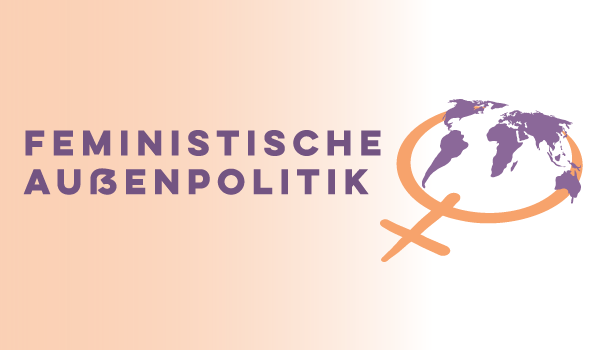In a time of uncertainty and multiple crises, the need for innovative responses to current challenges is becoming increasingly important. The global world order shows that the existing instruments and measures of states and multilateral organizations are no longer adequate. Feminist foreign policy is a new approach. It is a peace policy that focuses on gender equality and marginalized groups.
In recent years, numerous states have decided to shape their foreign policy in a feminist way. Their concepts differ and in some cases set different priorities.
The workshop series aims to shed light on the main features of a feminist foreign policy and show how a foreign policy should be designed in all its sub-areas - security policy, asylum and migration policy, climate policy, economic and trade policy and development policy - in order to meet the claim of being feminist.
The aim is to develop demands that can serve as a basis for civil society interventions with regard to shaping a feminist foreign and development policy for Austria.
Workshop: Feminist decolonial solidarity in development cooperation and international cooperation - an im/possibility?
as part of the Entwicklungstagung from 21 - 23 November 2025 in Innsbruck
with
Radwa Khaled Ibrahim (medico international/ Goethe Universität Frankfurt)
Janine Wurzer (WIDE)
Facilitator: Mara Elena Zöller (Brot für die Welt/WIDE)
Workshop report (German)
Workshop Feminist practice: For greater justice in global trade
Friday, 3 October 2025, 9:30 - 14:00 at HausWirtschaft
with
Miriam Mona Mukalazi (VIDC - Global Dialogue)
Theresa Kofler (Plattform Anders Handeln)
Facilitator: Mara Elena Zöller (WIDE)
Workshop report (German)
Workshop Climate Justice in Focus of Feminist Foreign Policy
Monday, 21 October 2024, 13:00 – 17:00 at Otto Mauer Zentrum
with
Sheena Anderson (formerly Netzwerk F)
Shonali Pachauri (International Institute for Applied Systems Analysis - IIASA)
Workshop report (english)
Workshop Feministische Perspectivs on Asylum & Migration
Thrusday, 27 June 2024 at C 3 - Centrum für Internationale Entwicklung
with
Judith Kohlenberger (Institut für Sozialpolitik der Wirtschaftsuniversität Wien)
Sangeetha Manavalan (LEFÖ-IBF)
Workshop report (german)
Workshop Feminist Security Policy - Obstacles & Opportunities
Wednesday, 24 April 2024 at the Diplomatic Academy
with
Stephanie Fenkart (International Institute for Peace)
Madita Standke-Erdmann (King’s College London)
Workshop report (german)
Workshop Feminist Foreign Policy from a Postcolonial Perspective
Wednesday, 29 November 2023 at the International Institute for Peace
with Toni Haastrup (University of Manchester)
Workshop report (english)
Kick-off event Feminist Foreign Policy
Tuesday, 28 November 2023 at the Austrian Parliament
with
Ann Linde (former swedish minister of foreign affairs), Kristina Lunz (Centre for Feminist Foreign Policy), Toni Haastrup (University of Manchester)
Report (english)


